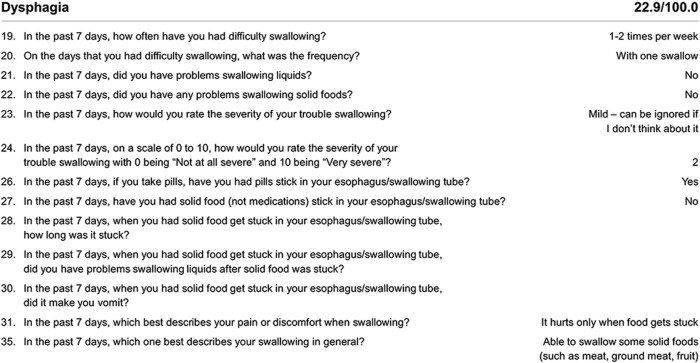Embark on a comprehensive exploration of sweet indigestion case study answers, delving into the causes, symptoms, and effective management strategies. This detailed guide provides a thorough understanding of this common digestive issue, empowering individuals to make informed decisions and improve their overall well-being.
Sweet indigestion, characterized by a burning sensation in the chest after consuming sugary foods, affects a significant portion of the population. Understanding the underlying mechanisms and potential risk factors associated with this condition is crucial for developing effective prevention and treatment plans.
Sweet Indigestion Case Study: Overview
Sweet indigestion, also known as dumping syndrome, is a condition that occurs after consuming a sugary meal. It is characterized by a range of symptoms that can include nausea, vomiting, abdominal pain, and diarrhea. The underlying causes of sweet indigestion are complex and involve rapid gastric emptying, leading to a sudden influx of glucose into the small intestine.
Risk factors associated with sweet indigestion include diabetes, gastric surgery, and certain medications.
Diagnostic Procedures for Sweet Indigestion

Physical Examination and Medical History Review
During a physical examination, the healthcare provider will assess the patient’s abdomen for tenderness or distension. The medical history review will focus on identifying potential risk factors, such as diabetes, gastric surgery, or medication use.
Diagnostic Tests
- Endoscopy:A thin, flexible tube with a camera is inserted into the stomach and small intestine to visualize any abnormalities.
- Barium Swallow:The patient drinks a barium solution that coats the digestive tract, making it visible on X-rays.
- Breath Tests:These tests measure the levels of hydrogen or methane in the breath, which can indicate bacterial overgrowth in the small intestine.
Treatment Options for Sweet Indigestion: Sweet Indigestion Case Study Answers
Lifestyle Modifications and Dietary Changes, Sweet indigestion case study answers
- Eating Smaller, Frequent Meals:This helps prevent rapid gastric emptying and reduces the influx of glucose into the small intestine.
- Avoiding Sugary Foods and Drinks:Limiting the intake of simple sugars can help control symptoms.
- Lying Down After Meals:This can slow down gastric emptying.
Medications
- Antacids:These medications neutralize stomach acid, which can help relieve symptoms.
- H2 Blockers:These medications reduce stomach acid production.
- Proton Pump Inhibitors:These medications block acid production in the stomach.
Surgical Interventions
In severe cases, surgery may be necessary to correct underlying anatomical abnormalities or to slow down gastric emptying.
Prevention Strategies for Sweet Indigestion

Dietary Recommendations
Avoiding sugary foods and drinks is the most effective way to prevent sweet indigestion.
Lifestyle Modifications
- Eating Slowly and Chewing Thoroughly:This helps break down food and slow down gastric emptying.
- Getting Regular Exercise:This helps improve overall digestive function.
- Managing Stress:Stress can trigger sweet indigestion.
Managing Underlying Health Conditions
Proper management of underlying health conditions, such as diabetes, can help reduce the risk of developing sweet indigestion.
Questions and Answers
What are the most common symptoms of sweet indigestion?
A burning sensation in the chest, bloating, gas, and nausea are typical symptoms.
What are the potential causes of sweet indigestion?
Consuming sugary foods, gastroesophageal reflux disease (GERD), and certain medications can contribute to sweet indigestion.
How can I prevent sweet indigestion?
Avoiding sugary foods, eating smaller meals more frequently, and managing underlying health conditions can help prevent sweet indigestion.
What are the treatment options for sweet indigestion?
Lifestyle modifications, dietary changes, antacids, H2 blockers, and proton pump inhibitors are commonly used to treat sweet indigestion.